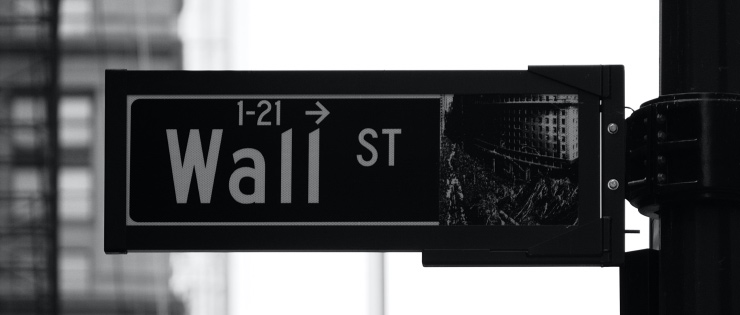Portfolio manager’s Letter January 2010
“Why Capitalism Works” essay

In a September story in the Boston Globe, the author points out that economist Hyman Minsky felt that capitalism was inherently unstable because periods of economic stability encouraged bankers and business people to accept ever-increasing risks. This process eventually leads to instability. This may be newsworthy now in Boston, but in Nebraska we learned about business cycles in econ 101. And while it is true that I may have gone to college in the dark ages, it turns out that despite all the work by Ivy League economists, the down part of the economic cycle is still with us, and may well be the reason why capitalism works.
Author Stephen Mihn, a professor of history at the University of Georgia, wrote a book entitled, “A Nation of Counterfeiters”. Both Professor Mihn and Minsky, to some extent, apparently feel that this instability (the business cycle) is a structural flaw in our economic system that dooms capitalism to failure, rather than the reason why capitalism works.
If I were writing a story about Minsky’s theory, my slant would be a little different. The title of the essay would be “Why Capitalism Works,” for I believe that the business cycle, and the hard lessons that trail in the wake of the economy that has gone off a cliff, are why capitalism works.
A crash provides a nice ego haircut for those egos most in need of a trim and also provides a reliable antidote to the terminal arrogance that is a part of the human condition at the top of the market. Witness the recent behavior of corporate CEOs and the masters of the universe on Wall Street. Nothing raises the risk of bad behavior in the market, like a long period of good news.
The tendency to arrogance is part of the human condition, and no amount of wringing of hands or governmental regulation will change this. Capitalism is not a perfect system, but Capilatism works.
An economic crash indeed leaves a lot of collateral damage, but benevolent government intervention is liable to create lots of unintended consequences.
The invention of tricks such as a “Goldilocks Economy”, “soft landings,” or a “Greenspan Put” may prolong the good times. Still, as these tools increase the comfort level of market participants, they also feed egos and inflate arrogance. So, it seems that attempts to create a kind and gentle economy, in the end, serve only to make the eventual crash more spectacular.
The reason that socialism does not work is that, in its attempts to smooth out the bumps and remove pain, it basically works to institutionalize stupidity. Forty-plus years of exposure to the capital markets has convinced me that life’s most important financial lessons are generally accompanied by pain. The lessons learn from that pain is the reason why capitalism works.
This pain seems to be the only remedy for the hubris that infects the majority of all human participants toward the end of a long bull market. It is the things that we learn in the economic correction that propel the change that makes our economy grow, and why capitalism works.
Current Events of Market
James Grant, of “Grant’s Interest Rate Observer”, who has earned top tier credentials as a perma bear, has recently turned (gasp) bullish. The reason being that for the entire period of the twentieth century corrections, and the rallies that followed the corrections, were without exception symmetrical. Sharp corrections have been followed by strong rallies. While this may seem a tenuous basis for making investment decisions, it is possible that there is a rational explanation for this pattern.
The sharpness of the correction indicates the amount of pain. Since pain leads to wisdom, it follows that the sharper the bear market, the more we learn from it. While it is much too early to see what the lessons will come from our current learning experience, the knowledge likely gained will be considerable, and this is why capitalism works.
So, when Buffett says that America’s best days are ahead of us, I think it likely he is correct. It was certainly true after disaster struck in the 1930’s and the 1970’s. The market correction of the 70’s laid the foundation of globalism, and changed the face of capitalism for the next thirty years.
There is, of course, no guarantee the current correction is over. It is likely, in fact, that we will have at least one more short term correction before our current long term bear market is over. The bear market of the seventies lasted for seventeen years, and in the thirties, the economy did not fully recover until the nineteen forties. The current correction has been in progress for ten years now, and so we are probably closer to the end of the correction than the beginning.
Indeed, it may be fair to speculate that somewhere not too many years down the road dwells the reward for the pain that we are currently experiencing. Then we will see of strong economic growth similar to what we experienced in the 1950s and ’60s and the 1980s and 1990s, and see why capitalism works.
Blog Archive
